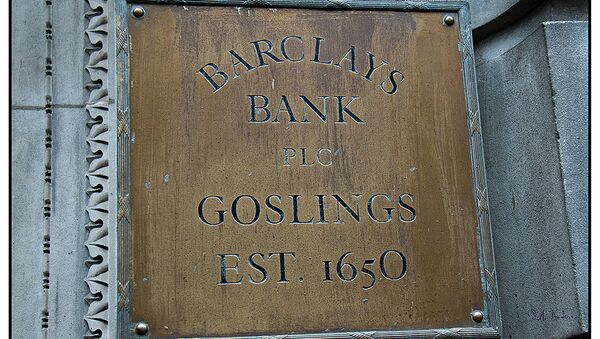Kristian Rouz — Hedge funds, one of the most prominent types of financial market participants and institutionalized investors, are projected to decline in numbers by the year-end for the first time since the 2008 crisis, affecting the volume and composition of global capital flows, according to the recent research undertaken by the London-based bank, Barclays Plc.
According to Barclays' estimate, by late 2016, some 340 hedge funds will cease to exist internationally, a 4 percent decline compared to late 2015. Previously, the industry had grown steadily since 2009, when the scale of contraction was the same 4 percent, while in 2008, some 11 percent of hedge funds closed throughout the globe.
In July, there were a total of 10,007 hedge funds operating worldwide, according to a monthly report by the research firm Hedge Fund Research. Meanwhile, Barclays expects 340 of these to close before the year-end.
According to Barclays' survey conducted among market participants, the reason for the contraction in the hedge fund industry is that the entire industry has grown too big to sustain its scale of operation amidst the closing investment opportunities in the slower-growth global environment.
"Based on recent HF (hedge fund) performance and the increased challenges to launching an HF, we estimate that there would be a net decrease in the number of funds by YE (year end) 2016," Barclays said.
However, the bank's analysts went on to say it is not the industry has become too large to support itself. After a thorough look into the hedge funds at risk, Barclays discovered the largest HF are more likely to cease their operation, unable to sustain their own balance sheets due to lower ROI globally.
Therefore, the accumulated overcapacity and uninventive profit-seeking patterns as practiced by some of the world's leading hedge funds are likely to result in an erasure of billions of dollars of investment capital by the year-end.
The main issue is the slow global economic growth, hitting hedge fund performance, as the funds themselves are doing nothing wrong to their understanding, based off their past experience.
"Historically, investing in crowded names has generated positive returns, particularly in stable, rising markets. However, when the reverse happens, it tends to be sharp and painful," Barclays explained.
Meanwhile, as certain individual hedge funds are at grave risk, the overall HF industry does not look overheated. HF assets have gained only an average 10 percent per year between 2009 and 2015, whilst certain particular funds have added over 65 percent of that to their balance sheets and new and smaller funds had a smaller share of wealth and asset accumulation.
Yet, even the 10 percent year-on-year growth in hedge funds looks like an overkill against the backdrop of a weak global growth environment, averaging below 3 percent a year during the same period.
Recently, Howard Marks of Oaktree Capital Group also observed that hedge fund appeal amongst investors is slowing as their existing balance sheets will effectively prevent them from growth in revenues and wealth-generating fairly soon.
"The performance of the greatest hedge funds, run by geniuses, created a huge umbrella over this industry, which permitted the other 9,990 hedge fund managers to start hedge funds and command hedge fund fees," Marks noted. "I dare say that the average hedge fund performance since 2004 has not warranted the average hedge fund compensation."





